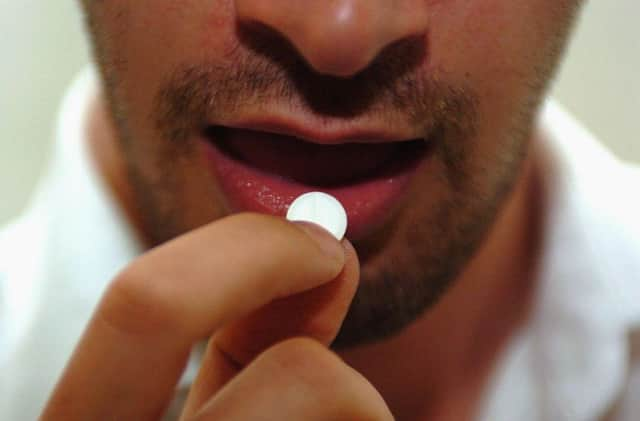Take aspirin to ward off cancer, doctors say


The research shows long-term use of aspirin significantly reduces the risk of developing major cancers – mostly those affecting the digestive tract – and dying from them.
If everyone in the UK aged 50 to 64 took aspirin for ten years, an estimated 130,357 cancer deaths could be avoided over two decades, the study found. A further 9,473 fatal heart attacks would also be prevented.
Advertisement
Hide AdAdvertisement
Hide AdHowever, such aspirin use would be expected to cause just under 18,000 deaths over 20 years, mainly due to internal bleeding and strokes.
But the scientists believe the scales are tipped firmly towards taking aspirin when weighing up the risks and benefits.
Lead researcher Professor Jack Cuzick, head of Queen Mary, University of London’s centre for cancer prevention, stopped short of urging GPs to prescribe aspirin to healthy patients, but said: “I think they should recommend it.”
He revealed that he took a daily low-dose aspirin pill every day “as part of a bedtime ritual”.
The research pulled together all the available data from reviews and clinical trials looking at all the effects of preventative use of aspirin.
Prof Cuzick’s team found that taking the drug for ten years could cut bowel cancer incidence by 35 per cent and deaths by 40 per cent. Rates of stomach and oesophageal cancer were reduced by 30 per cent, and deaths from these diseases dropped by 35 per cent and 50 per cent respectively.
Aspirin had a weaker impact on non-gastrointestinal cancers. But taking the drug lowered rates of lung and prostate cancer by 5 per cent and 10 per cent, and deaths from both by 15 per cent. It also cut breast cancer incidence by 10 per cent and mortality by 5 per cent.
Use of the drug cut heart attack risk by 18 per cent, but only led to a 5 per cent drop in heart attack deaths.
Advertisement
Hide AdAdvertisement
Hide AdOverall, rates of serious or fatal bleeding in the gut due to the blood-thinning effects of aspirin were very low under the age of 70, but increased sharply after that age.
The drug also raised the risk of peptic ulcer by 30 per cent to 60 per cent, and the chances of dying from a haemorrhagic stroke by 21 per cent.
Prof Cuzick said: “It has long been known that aspirin, one of the cheapest and most common drugs on the market, can protect against certain types of cancer. But until our study … it was unclear whether the pros of taking aspirin outweighed the cons.”
“Whilst there are some serious side-effects that can’t be ignored, taking aspirin daily looks to be the most important thing we can do to reduce cancer after stopping smoking and reducing obesity, and will probably be much easier to implement.”
The research suggests that, to be effective in preventing or fighting cancer, aspirin has to be taken over a long period – at least five years and ideally ten.
The research was published in the journal Annals of Oncology.